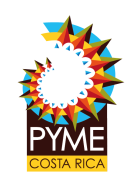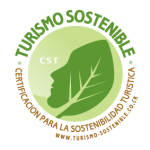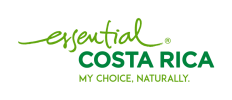Cargando ...
GENERAL FAQ FOR ALL YOUTH CAMPS
FAQ FOR THE CHILDREN’S ART, SPORTS AND SPANISH CAMP
Families with children attending the Art, Sports and Spanish camp in Playa Tamarindo, Costa Rica should fly in and out of Liberia International Airport (LIR). It is not mandatory that ISLS does the airport, but we can arrange it if so desired.
Playa Tamarindo has numerous housing options for families with children on the camp. ISLS has created a private on-campus lodging compound for our camp families. We have four different options for our families. Availability is limited, so first come, first serve.
- Private Room
For one or two adults and one small child; full sized bed and one small sofa bed. Private bath, a/c, fan, hot water and access to communal kitchen and laundry, $75/night. - Studio Apartment
For up to four, two adults and two children; Queen sized bed and bunkbed. Private kitchen, bath, a/c, fan, hot water, smart tv, private balcony and access to laundry, $115/night. - 2 Bdrm Apartment
For up to five, two adults and three children; Queen sized bed in 1st room and bunkbed and single bed in 2nd. Private kitchen, bath, a/c, fan, hot water, smart tv, wifi, private balcony and access to laundry, $155/night. - 3 Bdrm Apartment
For up to 8, four adults and four children; Queen bed in 1st room, Full bed and sofa bed in 2nd room, bunkbedand single bed in 3rd. Private kitchen, bath, a/c, fan, hot water, smart tv, wifi, private balcony and access to laundry, $ 205/night.
Other important questions
There is only one camp where the airport pick-up and return are included in the camp price and that is the Teen Spanish, Service & Turtle Rescue. This is a two week only camp and all participants are required to arrive on the specific start date of the camp and depart on the specific end date of the camp. For students attending the Service and Turtle Rescue Camp, they will fly in and out of San Jose (SJO). All other camp students; adults, children, families, teen day campers and teen residential campers on the Surf Camp and the Adventure Camp, airport transports are additional. The cost, per way, depends upon the airport, the camp and the number of people being picked up at one time. Please check each individual camp for exact pricing.
Yes. We can help parents make flight arrangement for their students and will happily book the tickets for you. If you are taking part in any discount involving a free airline ticket, then we will automatically make the flight arrangements. Please see separate rules in regard to these specials. We can also help to make travel arrangements for those families wanting to travel to Costa Rica themselves. We have a tour company, Explornatura, which is a part of our family of companies in Costa Rica. The staff can help create custom itineraries for families that want to travel around the country, before, during or after our youth camp sessions. You can contact Massi Devoto at This email address is being protected from spambots. You need JavaScript enabled to view it. . Just let him know that you are with ISLS and our Spanish Camp, he will help you make all your travel plan
We recommend that all students bring their own water bottles. At many locations, students will have access to drinking water and can fill the bottles. Bottled water may also be bought. In order to prevent the spread of any illness, we discourage the sharing of water bottles. The bottles should hold at least 16 ounces and should have the student’s name on it. At the host family, the water is potable but if you want to purchase bottled water there are plenty of stores at all of our camp locations that sell it.
All students will need to have current passports that do not expire for at least six months after arrival. Upon checking into the school at each camp location, students will turn in their passports to the lead counselor. These will be stored in a safe and returned to students at the end of the program at the airport. If students need to cash traveler’s checks or need their passport for any other reason during the program, they will be made available by the counselors.
When students first arrive in Costa Rica they will be given an opportunity to call home and let their families know that they have arrived safely. The cost of this call is included in the camp price, as well as any emergency calls. Most students now bring their smart phones. There are numerous different apps for them to use while connected to the internet.
We would prefer not to have students bring cell phones on the program, but it is not realistic. Parents want to be able to get a hold of their kids and they want their kids to be able to communicate if there are any problems. We do however have some rules about use of the cell phones. They are strictly forbidden during Spanish classes. It is disrespectful and disruptive to the teacher and the rest of the class. Continued breaking of this rule can lead to the student’s phone being taken away. Also, during other camp activities, we ask that students refrain from using them. Also, if you choose to send your child with a phone, you will need to check with your individual US carrier for details about international plans and rates.
All students will have access to the internet. When students arrive in Costa Rica, they will be able to e-mail their families. This is in addition to the phone call that all students can make when they arrive. Throughout the program, internet access and e-mail will be available for free or for a nominal fee, depending on location.
We would highly recommend against students bringing laptops. There is really no need as you will have daily access to internet and the hotels do not have internet access in the rooms. It is just one more thing to carry around and worry about; since we are traveling a lot in a tropical country, there are a great many things that can happen to it. Many students to bring tablets and smart phones.
For camps with hotel lodging, students will have roommates. Students who are traveling by themselves will be assigned roommates. These roommates will be other campers of similar age and gender. If students are traveling with friends or family members, they can choose either to room together or separately. Please inform us of your preference prior to the program start date. For the Spanish, Service and Sea Turtle Rescue Camp in Turrialba students are housed individually or with other students in local Costa Rican houses. If students are traveling together and want to stay with the same family, we can do this. Also, if you would like your student to be the only students in a local family, we can do this too, just let us know. We place students in the same neighborhood and is some cases next door to each other.
If an accident, illness or any other mishap should occur, the student’s parents or legal guardian will be immediately contacted. If medical attention is required, the parents will be informed of the doctor’s evaluation and prognoses. All treatment will be cleared with parents before proceeding unless we are unable to get a hold of the parent and the situation is such that immediate attention is required. Each parent will be required to sign a medical release form in case this should become necessary.
Before departure, each student will receive a confirmation letter which will contain all of the emergency contact numbers for the camp of their choice. This will include all of the phone numbers and e-mail address for the counselors, hotels and Spanish schools. Parents will be able to get a hold of the lead counselor at any time, 24 hours/day, on their emergency cell phone.
At the end of each program, students will be transported by our van to their prospective flights. Counselors will accompany each group to the airport, walking them through the check in lines and getting them their seat assignments. Staff will be with the students up to the security check in line. At this point the students will pass through on their own to their gates. The San Jose International airport (SJO) is avery small and convenient airport, and LIR in Liberia is even smaller. Students will be able to go to their gates very easily and get on the plane. Should something happen after the time that the student has left the counselors at security, they will have phone cards and the lead counselor’s cell phone number and can contact him or her immediately.
At the beginning of each program, every student will be given the opportunity to change money into the local currency. Depending on destination and the itinerary, this will usually happen the first Monday morning of the program and councilors will walk students through the process. During the rest of the program students will be able to change money at the hotel or local banks in the town. It is actually easier to use an ATM card to take out money in the local currency.
We recommend that students bring down no more than $100 per week. The reason for this is that almost everything is covered in the price of the program. In addition to the airport exit tax, the only things that students usually spend money on are extra drinks, dessert, gifts and souvenirs. Most students come back with money they did not spend.
All in country transportation is included in the price of the program. We use primarily private vans to transport students. These are driven by professional local drivers. We also use large buses on some occasions and these are also driven by professional local drivers. All drivers and vehicles are insured, well maintained and meet all local safety standards.
At each camp we have a maximum of 9 students per counselor ratio. This guarantees a high level of supervision. In addition to the counselors are the Spanish teachers, language school personnel, our drivers, hotel staff and host families. We have been doing these Spanish language programs for many years in these destinations and have a large local workforce.
Students can attend all of our Spanish camps with any level of Spanish ability. We have students who have never attended a Spanish class to those that come from Spanish speaking families and everything in between. We never put students of different Spanish levels together in the same class. On the first day of classes all students are given an oral and written evaluation with the Spanish director. From this we determine the student’s language ability at the start of the program. They are then placed into small groups of students with their same level of ability. Throughout the program students are monitored and if need be their level and class placement is adjusted. A fact to remember is that most students from the United States who have had Spanish classes before are normally much more advanced with the written form of the language than they are with the oral form. For this reason, students may be placed in class levels that will go over grammar and lessons that they already know in order to get their conversational ability to match their written.
Yes. Every student on each of our youth camps will receive a certificate of completion for their time in our program. This will state the number of hours, the level reached and the time and place of the program. With this many students will be able to get credit at their high school for the time they spent in our program. If a certificate needs to be more specific for an individual student or high school’s needs, we can customize the forms.
For all of our Youth Spanish and Adventure Camps, safety is the highest priority. In everything that we do, from choosing the camp locations and types of hotels and host families to picking adventure outfitters for our tours, creating a safe and enjoyable environment is our guiding principle. The camps are located in small communities with low crime rates. All of our hotels are in safe areas with security staff, medical facilities, emergency equipment and bilingual employees. All of our tour operators are licensed by their prospective governments and meet all standards of training and equipment maintenance. We do a safety seminar with the teens at the beginning of each program. During the camp, students will never be allowed outside the hotel, school, host family or organized activities by themselves. During free time students must be with other students and check out and in with the lead counselor or their host mother. Each location has boundaries outside of which campers are not allowed. Nightly curfews and our zero tolerance policy for drugs and alcohol are strictly enforced. Students are only allowed to swim or surf at the beach when and where lifeguards are present. At all three beach camps, we meet with the local head lifeguard to go over rules of the beach and the current tide conditions. We always try to anticipate any possible dangers so we are better able to avoid them.
Thankfully, we have never had a student seriously injured on one of our Youth Spanish and Adventure Camps. Every year we have our share of cuts, scraps, bruises and upset stomachs, but no broken bones or life threatening accidents. In each case that was deemed necessary for a student to see a doctor, the parent or guardian was contacted. We have had many ear infections and on one camp we even had an outbreak of strep! In these cases students were taken to the local hospital or clinic and given medication to cure their ailments. Parents are notified of any injury or illness that their children may have and their made aware of any medication that has been prescribed.
Costa Rica is one of the safest countries in the world. They have no standing army, so they have no culture of war or weapons. They have no history of kidnappings or abductions. Costa Rica has the second fewest number of assaults in the world and other types of violent crime are equally low. Having said all of this, as everywhere, there is still some crime as well as the presence of drugs. Parents should speak to their teens in advance and help them understand that there is a certain amount of inherent risk to traveling. The best way to prevent crimes from happening is to not put yourself in compromising positions. Following the rules of the camps as well as having common sense will help to ensure a safe experience.
The ISLS Youth Spanish Camp Rules constitute the foundation of safety for all of our programs. We want our students to have a safe, healthy and enjoyable time with us and this means following our very reasonable rules. Breaking of these rules will result in loss of privileges and in some cases dismissal from the program without refund. Drugs, alcohol and tobacco are not permitted on the program and ISLS reserves the right to search for illegal substances if counselors deem it necessary. If a student is caught drinking alcohol or doing illegal drugs, their parents are immediately notified and the student will be sent home. We have a zero tolerance policy and parents will be liable for any additional costs incurred in sending a student home. Behavior that is detrimental to the safety and enjoyment of all students will not be tolerated.
Most of our students come from the United States. About 80% of the students come from every state in the union. About 10% come from Canada and the rest usually come from Europe. We have had students from Taiwan, Australia, South Africa, Nigeria and New Zealand too.
It is extremely rare for students to not enjoy their time in our Summer Teen Spanish and Adventure Camps. It is very important that parents make sure that their children are mature and capable of handling this type of program. Our camp is not for every child. Some of the reasons for students to not enjoy the program are not giving it a chance, problems with our drug and alcohol policy or having a negative attitude upon arrival. We only want students who truly want to be in our program.
Most students who attend our summer programs have taken some Spanish classes, but this is not required. If a student has no experience in the language, that is fine. Also, you do not need to know how to surf in order to be a part of this program. All we require is that students be in relatively good physical shape and that they know how to swim.
If you need or want to make a change to your reservation once it is confirmed, you can. For the Family Spanish camp there is a $50/family fee. For one of our Teen Spanish Camps, there is a $50/student fee. For all of our Adult Spanish Programs, there is a $25/student change fee. All changes are subject to availability
There is a nonrefundable $200 registration fee. ISLS will refund 50% of the balance of the deposit up to 8 weeks prior to the start of the program. Once we receive full payment for the program, we will refund 50% of the total amount minus the registration fee until the start of the program. Once the program has begun there is NO refund of the program price. Cancellation of the program must be in writing, either by e-mail or letter.
FAQ FOR OUR TEEN SPANISH CAMPS IN PLAYA TAMARINDO
Students on any of our Teen Camps in Playa Tamarindo fly into and out of Liberia Airport (LIR). The airport pick up and drop off service is NOT included in any of the prices. For all teen, children’s, residential or day camps in Tamarindo, the airport service is an additional price. The price for teens arriving unaccompanied is $125/one student, $75/two students and $55/student for three or more. To receive the discounted price for multiple students, all students must arrive together and be on the same flight. If students are on separate flights, they will be charged the individual student rate.
Yes. The fee for this is $300/way. This includes a private driver along with a camp counselor accompanying the student to and from the airport. San Jose Airport (SJO) is a 4-hour drive from Tamarindo. If a student arrives late at night or cannot go directly to Tamarindo upon arrival, there will be an additional $150 fee for lodging and meals.
Yes. While students will have access to surfboards during the surf lessons and during free time, those students that already have their own should consider bringing them. However, there is no camp price discount if you bring your own board. We will have a secure place to store your board at the school, which is on the beach.
During lessons, each student will be assigned a surfboard. During the free time, the camp will provide access to a limited number of surfboards that are handed out on a first come first serve basis. Those students wishing to make sure that they have a board during free time are welcome to rent surf boards themselves or bring their own from home.
Yes, we have local host houses where students on our teen camps can stay. These are specially chosen families who welcome the students into their houses and families. Breakfast and dinner are with the local family and lunch is when the other teen camp students. Transportation each day, from the family to the camp and back is included.
Meals depend upon your lodging choice. Students staying with local host families will have breakfast and dinner with their families, and have lunch with the rest of the group. When staying at the residential camp lodging, breakfast is provided at the camp compound. It is typically a continental style breakfast with eggs, fruit, potatoes, pancakes, toast, juice and coffee. Lunch for all students, including those at the homestay is together and is served family style. Dinner for non-host family students is at a local restaurant where students order one entree and one drink off the menu. Dessert is not included in regular meals.
Laundry will be done once a week at both the homestay and the camp compound. Students are limited to 5 Kilos or 11 pounds per week. If a student’s laundry bag exceeds this amount they will be charged $1/Kilo (2.2 pounds) for each kilo over the maximum amount.
It is our policy that we do not change roommates once the camp starts. We have in the past made exceptions to this rule, but only in extenuating circumstances.
In Tamarindo, s tudents will have access to a safety deposit box, either in the hotel room or at the front desk. These are provided so that students can store valuables such as money and traveler’s checks. While we have had very little problem in the past with theft, it is always a good idea to take precautions.
Each camp location has different surf, tide and beach conditions. Some of these conditions are year-round while others are affected by weather and seasonal fluctuations. Each day, surf lessons are timed to coincide with the optimal tide conditions. We also require that all of our surf instructors also be trained lifeguards. If at any point the surf conditions are such that it would be dangerous for the students to be in the water, the lessons for that day will be cancelled and made up at a different time. Through the years, we have had no serious injuries to students on our program while surfing.
FAQ’s FOR THE SPANISH, SERVICE AND SEA TURTLE RESCUE CAMP
FAQ FOR THE CHILDREN’S ART, SPORTS AND SPANISH CAMP
Playa Tamarindo has numerous housing options for families with children on the camp. ISLS has created a private on-campus lodging compound for our camp families. We have four different options for our families. Availability is limited, so first come, first serve.
- Private Room
For one or two adults and one small child; full sized bed and one small sofa bed. Private bath, a/c, fan, hot water and access to communal kitchen and laundry, $75/night. - Studio Apartment
For up to four, two adults and two children; Queen sized bed and bunkbed. Private kitchen, bath, a/c, fan, hot water, smart tv, private balcony and access to laundry, $115/night. - 2 Bdrm Apartment
For up to five, two adults and three children; Queen sized bed in 1st room and bunkbed and single bed in 2nd. Private kitchen, bath, a/c, fan, hot water, smart tv, wifi, private balcony and access to laundry, $155/night. - 3 Bdrm Apartment
For up to 8, four adults and four children; Queen bed in 1st room, Full bed and sofa bed in 2nd room, bunkbedand single bed in 3rd. Private kitchen, bath, a/c, fan, hot water, smart tv, wifi, private balcony and access to laundry, $ 205/night.







